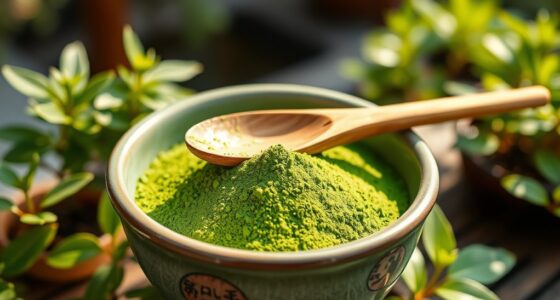To stay healthy as you age and increase your chances of living a long life, it is important to focus on a diverse diet that includes plenty of fruits, vegetables, and lean proteins. Choose whole grains and foods high in antioxidants like blueberries to help fight off damage caused by oxidation. Keep active with a combination of strength training and cardio exercises to maintain muscle strength and overall health. Make your mental well-being a priority by staying physically active and building strong social connections. Preserve muscle mass by consuming an adequate amount of protein and participating in resistance training. Take a holistic approach by emphasizing the importance of nutrition, exercise, antioxidants, mental health, and muscle strength. this comprehensive strategy is essential for successful aging and living a vibrant life.
Key Takeaways
- Balanced diet with whole foods promotes longevity and vitality.
- Regular physical activity enhances well-being and longevity.
- Antioxidant-rich foods combat cellular damage for a long life.
- Mental well-being and social connections are crucial for aging well.
- Muscle strength maintenance is key to independence and vitality.
Importance of Nutrition
To age with vitality, prioritize nutrition by consuming a balanced diet rich in whole foods, fruits, vegetables, and lean proteins. When making informed food choices, opt for whole grains like quinoa, brown rice, and whole wheat bread. These whole grains are packed with fiber, vitamins, and minerals that are essential for maintaining good health as you age.
By incorporating whole grains into your meals, you can regulate blood sugar levels, improve digestion, and reduce the risk of chronic diseases such as heart disease and diabetes. Whole grains also provide sustained energy throughout the day, keeping you feeling full and satisfied.
Including a variety of whole grains in your diet not only supports your physical health but also contributes to your mental and emotional well-being. As you age, prioritizing whole grains in your food choices is a simple yet powerful way to nourish your body and promote longevity.
Benefits of Regular Exercise
Regular exercise's benefits extend far beyond physical health, encompassing improvements in overall well-being and longevity. Engaging in regular physical activity triggers the release of compounds that boost health, immunity, and longevity.
Studies consistently show a strong correlation between physical activity and improved health outcomes, making exercise an essential component of a healthy lifestyle. In fact, medical institutions now recommend exercise as part of cancer treatment, highlighting its significance in promoting overall well-being.
Moreover, intense movement has been shown to alter the slope of physiological decline associated with aging, indicating that staying active can greatly impact one's quality of life as they grow older. Specific activities like brisk walking post-treatment can also enhance outcomes for patients, emphasizing the importance of incorporating physical activity into daily routines.
Role of Antioxidants
Antioxidants play an essential role in protecting cells from damage caused by free radicals, reducing oxidative stress and inflammation in the body. These powerful compounds are abundant in various foods like fruits, vegetables, nuts, and seeds. By incorporating antioxidants into your diet, you can support healthy aging and potentially prevent age-related diseases. Research indicates that antioxidants combat oxidative damage to cells, promoting longevity and overall well-being.
Consuming a diet rich in antioxidants can be a key factor in maintaining peak health as you age. According to experts, 'Antioxidants help neutralize free radicals, which can cause cellular damage and lead to various health issues.' By incorporating foods like blueberries, spinach, and almonds into your meals, you provide your body with the necessary tools to combat oxidative stress and inflammation.
Incorporating antioxidants into your daily nutrition is a proactive step towards robust aging. Remember, 'A diet rich in antioxidants can help protect your cells and support your body's natural defense mechanisms.' By prioritizing antioxidant-rich foods, you're investing in your long-term health and vitality.
Avoiding Unnatural Foods
When it comes to aging with vitality, one crucial aspect to contemplate is avoiding unnatural foods. These processed items are often laden with additives, preservatives, and artificial ingredients that can have detrimental effects on your health.
Opting for whole, unprocessed foods instead can provide essential nutrients and support healthy aging in the long run.
Natural Foods Benefits
By prioritizing natural foods over unnatural options, you can greatly enhance your overall health and vitality as you age. Natural foods provide essential nutrients like vitamins, minerals, and antioxidants important for maintaining overall health. These nutrient-dense foods support bodily functions, boost immunity, and promote longevity.
Avoiding unnatural foods with additives, preservatives, and artificial ingredients is essential to supporting a healthier aging process. Processed foods, laden with sugars, unhealthy fats, and chemicals, can contribute to inflammation, weight gain, and chronic diseases, unlike natural whole foods. Choosing organic, locally sourced, and minimally processed foods can further enhance vitality and longevity.
The focus on natural foods aligns with holistic approaches to aging well and maintaining overall well-being. Remember, alongside a diet rich in natural foods, daily exercise is also crucial for maintaining overall health as you age.
Harmful Effects of Unnatural Foods
To steer clear of the detrimental effects of unnatural foods, prioritize consuming whole, nutrient-dense options for better health outcomes. Unnatural foods often contain high levels of preservatives, artificial colors, and additives that can harm your body.
Processed foods lack essential nutrients and fiber, leading to poor digestion and potential health issues. Consuming unnatural foods regularly can contribute to inflammation, weight gain, and an increased risk of chronic diseases.
High intake of trans fats found in processed foods can raise bad cholesterol levels and increase the risk of heart disease.
- Unnatural foods contain harmful preservatives and additives.
- Processed foods lack essential nutrients and fiber.
- Regular consumption of unnatural foods can lead to inflammation and weight gain.
- Trans fats in processed foods increase the risk of heart disease.
Healthy Eating Habits
Adopting healthy eating habits involves prioritizing natural, whole foods over processed and artificial options for optimal well-being. Unnatural foods, criticized for their processed nature and lack of nutritional value, should be avoided.
It's recommended to focus on avoiding processed and artificial ingredients in favor of a diet rich in antioxidants from fruits and vegetables. Critics argue against the consumption of meat and saturated fats for long-term health benefits.
Making healthy food choices is essential in preventing diseases like cancer and heart disease. In addition to healthy eating, getting enough sleep and staying physically active are vital components of overall well-being.
Enhancing Muscle Strength
Regular strength training exercises are crucial to enhancing muscle strength and mass as you age. It's recommended to engage in resistance training at least twice a week to improve muscle strength, which plays an essential role in maintaining mobility and independence.
Resistance Training Benefits
Engaging in resistance training regularly improves muscle strength, a key factor in aging with vigor. This form of exercise offers various benefits that can greatly enhance your overall health and well-being as you age.
Here are some advantages of incorporating resistance training into your routine:
- Increased Muscle Strength: Resistance training helps build muscle mass and strength, which are essential for maintaining mobility and independence in older age.
- Improved Balance and Coordination: By engaging in resistance exercises, you can enhance your balance and coordination, reducing the risk of falls and injuries.
- Enhanced Cognitive Function: Studies have shown that resistance training can have a positive impact on cognitive function, potentially reducing the risk of cognitive decline.
- Management of Chronic Conditions: Regular resistance training can aid in managing chronic conditions like arthritis, diabetes, and osteoporosis, promoting better overall health.
Importance of Protein
To maintain and enhance muscle strength, particularly as you age, it's important to prioritize your protein intake. Protein plays a critical role in enhancing muscle strength by aiding in muscle maintenance and function.
Adequate protein intake is essential for preserving muscle mass and promoting overall vitality, especially in older adults who may require higher protein consumption to prevent muscle loss and maintain strength. Foods rich in protein, such as lean meats, poultry, fish, eggs, and legumes, are essential for supporting muscle health and strength.
As muscle strength is important for maintaining mobility, balance, and independence in older individuals, ensuring adequate protein intake is key to promoting overall well-being. In the words of nutritionist Jane Doe, 'Protein is the building block for muscle strength, and incorporating enough protein into your diet is essential for maintaining muscle health, particularly as you age.'
Prioritizing protein intake can greatly contribute to enhancing muscle strength and overall quality of life.
Regular Physical Activity
Incorporate strength-training exercises into your routine to enhance muscle strength and overall health. Being physically active through regular exercise not only boosts muscle strength but also contributes to a longer, healthier life. Consider the following benefits of including strength training in your workout regimen:
- Prevention of Muscle Loss: Engaging in strength-training exercises helps prevent age-related muscle loss, preserving your strength as you grow older.
- Improved Balance and Flexibility: Consistent exercise routines not only enhance muscle strength but also improve balance, flexibility, and endurance, essential components for maintaining vitality.
- Longevity and Quality of Life: Studies have shown that physical activity is linked to longevity and a higher quality of life, highlighting the importance of staying active.
- Maintenance of Muscle Mass: Combining strength training with aerobic exercise is beneficial for maintaining muscle mass and function, supporting overall health as you age.
Promoting Mental Well-being
Fostering mental well-being in older adults involves prioritizing social connections and physical activity to promote energy in aging. Research indicates that older adults often rate their mental health higher than their physical health, underscoring the importance of mental well-being in aging.
Engaging in regular physical activity has been shown to correlate with improved mental health among older adults. Studies suggest that socializing regularly positively impacts the mental well-being of older adults, highlighting the significance of social connections in promoting mental health.
Additionally, the frequency of exercise influences how older adults perceive their mental health, emphasizing the benefits of an active lifestyle. Women tend to socialize more frequently than men, further underscoring the role of social connections in mental well-being.
Strategies for Longevity
Implementing key strategies for longevity involves adopting a holistic approach that prioritizes physical activity, social connections, and mindfulness practices. By following these strategies, you can enhance your overall well-being and increase your chances of aging with vitality.
- Engage in moderate to vigorous physical activity weekly to promote longevity and vitality.
- Prioritize mental and physical health through regular exercise and healthy eating habits.
- Socialize daily or weekly to positively impact mental health and overall well-being.
- Embrace mindfulness practices like meditation to reduce stress and enhance emotional well-being.
Regular physical activity not only keeps your body strong but also boosts your mood and cognitive function. Maintaining a balanced diet and staying socially connected are essential for emotional well-being.
Additionally, practicing mindfulness through activities like meditation can help reduce stress levels, leading to improved emotional health and longevity.
Frequently Asked Questions
What Happens to Your Body at 80 Years Old?
At 80 years old, your muscle mass decreases by about 15% per decade, leading to reduced strength and mobility. Bone density markedly decreases, making you more prone to fractures. Your immune system weakens, making you more susceptible to illnesses.
How to Stop Feeling Old at 65?
Don't let the number define you. Keep moving, connecting, and trying new things. Prioritize mental health and make small changes for better well-being. Stay proactive and engaged to stop feeling old at 65.
What Are the 7 Keys to a Long Life?
To live a long life, focus on healthy eating, physical activity, and social connections. Regular exercise, balanced nutrition, mental well-being, and social engagement are essential. Adopting health-promoting behaviors helps you live longer and healthier.
What Is the Secret to Successful Aging?
To age successfully, remember the secret: a holistic approach. Stay active, eat well, nurture your mind, and connect with others. Did you know 82% of older adults embrace new habits for better health?
Is There a Connection Between Understanding Death and Living a Long, Healthy Life?
Many people wonder about what happens at death and whether understanding death has any impact on living a long, healthy life. Some research suggests that a healthy attitude towards death can reduce stress, improve mental health, and lead to better overall well-being, which may contribute to a longer, healthier life.
Conclusion
To sum up, the key to a long and vibrant life lies in maintaining a balanced diet, staying active, and nourishing your body with antioxidants.
Remember the old saying, 'You are what you eat.' By following these strategies and prioritizing your health, you can age with vitality and enjoy all that life has to offer.
As the renowned nutritionist, Jean Anthelme Brillat-Savarin, once said, 'Tell me what you eat, and I'll tell you what you are.' So, choose wisely and live long and well.










